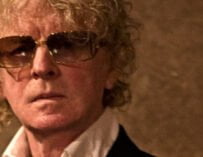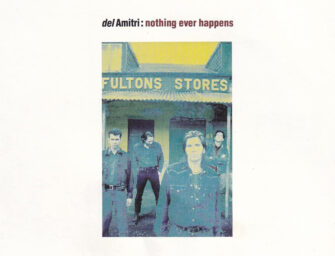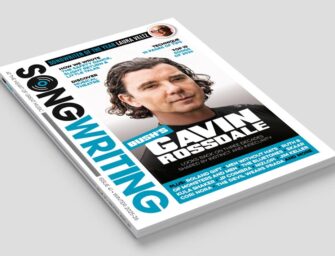
Tony Visconti: “My demos sounded much better than my songs did!” Photo: Howard Pitkow
In this first half of a bumper feature, the legendary American producer reveals some fascinating insights into Bowie and Bolan
Brooklyn-born Anthony Edward Visconti is a highly regarded record producer, songwriter and musician, who became famous for helping craft era-defining albums in the 1970s for T. Rex and David Bowie. The New Yorker’s musical life began aged five when he learned to play the ukulele before progressing to the guitar and becoming a fully-fledged musician. But it was working as an in-house producer at publisher Richmond Organization that would be Visconti’s first step on what would be an illustrious career path.
It was there that he met British producer Denny Cordell, who asked him to help record jazz vocalist Georgie Fame, before Visconti moved to London and discovered the band Tyrannosaurus Rex (later to become T. Rex). His relationship with the group would last for seven albums, including the production of Electric Warrior which made T. Rex frontman Marc Bolan a superstar and cemented Visconti’s producing prowess.
The American producer’s lengthiest involvement with any artist was with David Bowie, who he worked with on his 1969 album David Bowie as well as The Man Who Sold the World, Diamond Dogs, Young Americans, Low, Heroes, Lodger, Scary Monsters, Heathen, Reality, The Next Day, and all the way through to his final studio album in 2016, Blackstar.
As well as Bolan and Bowie, Tony Visconti has produced many other successful artists over the last 50 years including Ralph McTell, Sparks, Kristeen Young, Morrissey, Richard Barone, Thin Lizzy, Kaiser Chiefs, Manic Street Preachers, Boomtown Rats, Adam Ant, The Stranglers, Iggy Pop, Marc Almond, The Moody Blues and Prefab Sprout.
We uncovered so many fascinating insights on our call with Tony that we’re publishing this interview in two parts. Here we learn about his first impressions of Marc Bolan and David Bowie’s songwriting, and his pivotal role as their collaborator and producer…
Click here for more interviews
Take us back to the early days of your work as a producer, when the songwriting element came into play for the first time.
“Well, I started working as a musician and songwriter before I became a producer, but I had the disparaging review of my publisher saying that my demos sounded much better than my songs did! This led me to understand a lot about songwriting. It kind of deflated me and I never pursued songwriting after that, but I was sensitive to it and it made me critical of other people’s songs – I could tell the difference between a good song or a bad song, or a mediocre song. So that led me to seek out people who not only had great voices but could also write great songs.”
When you first worked as a producer, were you choosing the acts you worked with or were they simply allocated to you by a publisher?
“I started choosing who I’d work with from the beginning. I had a great mentor, his name was Denny Cordell – he produced Joe Cocker and a number of other illustrious people. For a year I was his assistant and after that he said, ‘It’s time you found an act of your own.’ Just before that, a lovely chap walked into our office whose name was Biddu. That was the only one I was assigned to work with. They said, ‘This guy can’t fail, he’s like an Indian Elvis!’ He was a decent songwriter and we did a song of his called Daughter Of Love, but it wasn’t a great song and I wasn’t a great record producer. So it was okay and we both cut our teeth on it and we never worked together again, although we retained a friendship. But after that, when Denny said to go and find a group, it was Marc Bolan who I found.”
How did that happen?
“Literally the day Denny told me that, I opened the International Times, which used was the precursor to Time Out, and I saw that Tyrannosaurus Rex were playing on Tottenham Court Road. John Peel had been playing them on the radio and I thought they were a great group and the songs were quite deep – they sounded a lot like The Incredible String Band, whom I was already familiar with and I loved. So I went to that club, walked down the staircase and, lo and behold, there was Marc Bolan sat on the stage with Steve Peregrin Took.”
“IF A SONG NEEDS FIXING, I CAN HEAL IT!”
What was it that attracted you most to Marc and the group?
“The first thing that hit me was the audience. Because I assumed I was going into a rock club where people would be standing up and dancing around, but there were about 100 young people sat on the floor cross-legged, like Marc and Steve were on the stage. This told me something really important was going on – he had a real following and they were imitating the way he sat and were hanging on to every word and every note. I thought this was extraordinary for those times.
“What also struck me was Marc’s voice, the melody and of course his charisma, because he was absolutely beautiful – he was one of the most beautiful men I’ve seen in my life, I think! The only thing I had any trouble with was I couldn’t understand his diction. He was into something weird in those days, and I don’t know what you’d call that affectation, but it was a style he’d developed. Nevertheless, when I got into the lyrics and understood them… He’d show me the page of lyrics before we’d record them and I thought, ‘Wow, this is stunning stuff.’ He was into Tolkien stuff like Lord Of The Rings and The Hobbit, and he’d created a kind of mythological world. To this day, I rate his poetry as some of the best I’ve ever worked with and his lyrics… I always work, as an arranger, close to the lyrical content of the song.”
How much did you get involved in his songwriting?
“I did right from the start. It was hard to tell them to do something differently, but it was the third album Unicorn when he trusted me to make arrangement ideas. I sat and played piano on one song and started writing strings, and that’s when the songs would kind of be written around that – it influenced his songwriting to see what an arranger would do with his music. He simplified a little bit, which was good, and it wasn’t like a seven-minute rambling jazz session – he was starting to write concise pop songs within the framework of the Tolkien-esque idea. That actually germinated on the very next album, which would’ve been T. Rex, when he actually made the name change. Then Marc and I became partners – until then I served him well as his producer and I made sure everything got faithfully recorded – but by T. Rex I was a creative partner, for sure, about fifty-fifty.”
Thinking of other artists you’ve worked with since, such as Bowie, do you tend to wait to be asked for input with their writing, or have you frequently needed to step in and make changes?
“That’s a good question because I only want to work with people who have a really strong talent. I can work with people who have great voices and don’t write, for instance, Elaine Paige – she doesn’t write a single note of music, but what a voice! So I was extremely involved with choosing the songs [for her] with Tim Rice and that was a great experience. But back to David Bowie, again, I respected his raw talent and I heard him at the very beginning, before I produced him. He made a record for Deram [Records, a subsidiary of Decca] where virtually every song on the album was a different style, and he was flirting with the idea of musical theatre as well. He told me later that if rock’n’roll didn’t work out he would’ve gone into musical theatre.
“So with him I had even more permission, than I had from Marc Bolan, to fool around with the songs and that started to happen on the Space Oddity album. The songs would be written on a twelve-string guitar but we wanted to expand it into a rock song or a folk-rock song, and I had the full reign in arranging. And also saying that we have too many choruses, or not enough choruses, or we could use a bridge – David would consider everything I said and he would either write something new or… All he wanted to do was make a great record and he had a great attitude about that, he wasn’t egocentric – he really wanted a team around him, right from the very beginning. So I supplied him with all that, which went right into the last album we worked on, Blackstar. I was always there for him for the arrangements, modify a song, here and there, but I call myself a ‘song doctor’ – if a song needs fixing, I can heal it!
“And you asked if I wait to be asked? No, I don’t wait because I have this urge – I actually start shaking a little bit – when I hear something great in my head, I just don’t care what they think of my idea. Because it doesn’t come from a place of egotism, it’s just an idea. As a record producer, over the years, the more experience I’ve gained, I have loads of ideas. So it comes out of me almost like Tourette’s syndrome! I just have to blurt it out and if it’s shot down, it’s shot down, it doesn’t bother me.”
Continued at ‘Interview: Tony Visconti (Part Two)’


































Related Articles